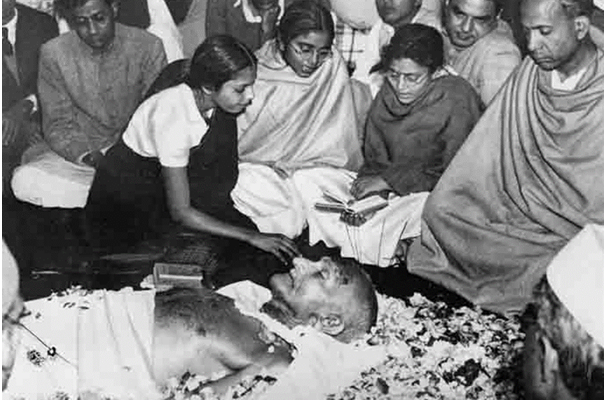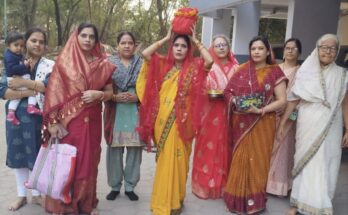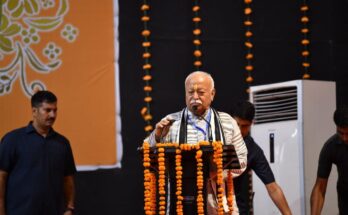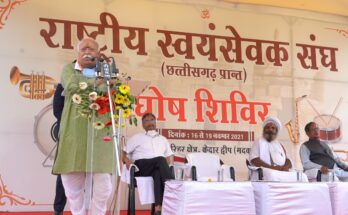Gandhi and Savarkar
Despite having a difference in means of liberating the country from slavery, Mahatma Gandhi maintained a rare, complex and respectful relationship with the Savarkar brothers – V. D. Savarkar and G.D. Savarkar. This is evident in ‘The Collected Works of Mahatma Gandhi’, which has spread into 100 thick hardbound volumes.
Eyeing political benefits from successive Congress regimes, the Communist historians have been making repeated attempts to besmirch the patriotic image of Veer Savarkar citing Jett clemency. Contrary to their false accusations, Mahatma Gandhi explains how the Savarkar brothers were denied justice when the majority of political prisoners received the benefit of the ‘Royal Clemency’. Mahatma Gandhi’s views on Savarkar are quite revealing and it is interesting to note how Gandhi saw the contributions of a revolutionary like Savarkar to the freedom struggle, despite their divergent views on many points.
‘Thanks to the action of the Government of India and the Provincial Governments, many of those who were undergoing imprisonment at the time have received the benefit of the Royal clemency. But there are some notable ‘political offenders’ who have not yet been discharged. Among these I count the Savarkar brothers. They are political offenders in the same sense as men, for instance, who have been discharged in the Punjab. And yet these two brothers have not received their liberty although five months gone by after the publication of the Proclamation,’ Gandhi wrote in an article titled ‘Savarkar Brothers’ in Young India dated 26-5-1920 (Complete Works of Mahatma Gandhi Vol 20; Page 368).
For the political prisoners, it was a common procedure for appealing for conditional clemency in a prescribed format. From the writings of Mahatma Gandhi, it Is beyond doubt that he was aware of Savarkar’s clemency letter, as a majority of the political prisoners in those days had applied for and was granted Royal Clemency, which was later protected as an unpardonable and unprecedented crime by the Leftists.
The Mahatma offers a brief biography of G. D. Savarkar in the article:
Mr. Ganesh Damodar Savarkar, the elder of the two, was born in 1879, and received an ordinary education. He took a prominent part in the swadeshi movement at Nasik in 1908. He was sentenced to transportation for life with confiscation of property under Sections 121, 121A, 124A and 153A on 9th day of June, 1909, and is now serving his sentence in the Andamans. He has therefore had eleven years of imprisonment. Section 121 is the famous section which was utilized during the Punjab trials and refers to ‘waging war against the King’. The minimum penalty is transportation for life with forfeiture of property. 121A is a similar section. 124A relates to sedition. 153A related to promotion of enmity between classes ‘by words either spoken or written’ or ‘otherwise’. It is clear therefore that all the offence charged against Mr. Savarkar (senior) were of a public nature. He had done no violence. He was married, had two daughters who are dead, and his wife died about eighteen months ago.
After giving a brief profile of G. D. Savarkar, Mahatma Gandhi introduces Veer Savarkar thus:
The other brother (Veer Savarkar) was born in 1884, and better known for his career in London. His sensational attempt to escape the custody of the police and his jumping through a porthole in French waters, are still fresh in the public mind. He was educated at the Fergusson College, finished off in London and became a barrister. He is the author of the proscribed history of the Sepoy Revolt of 1857. He was tried in 1910, and received the same sentence as his brother on 24th December, 1910. He was charged also in 1911 with abetment of murder. No act of violence was proved against him either. He too is married, had a son in 1909. His wife is still alive.
Elaborating on the content of the letters of the Savarkar brothers, Mahatma Gandhi states:
Both these brothers have declared their political opinions and both have stated that they do not entertain any revolutionary ideas and that if they were set free they would like to work under the Reforms Act (Government of India Act, 1919), for they consider that the Reforms enable one to work there under so as to achieve political responsibility for India.
With Mahatma Gandhi quoting the conditions proposed in the original letter, the big Leftist lie of ‘cover-up’ against Savarkar falls flat. Gandhiji speaks a self-evident truth that those including Gandhiji were fully aware of the content of the letters of Savarkar. Noticeably, it did not prevent him from calling Savarkar ‘a faithful son of Bharat and brave.’ As Gandhiji hailed Savarkar, he was ‘clever’ enough to take advantage of the situation where in seeking clemency was a norm, that has been extended to the most of the revolutionaries and political prisoners in the country during that period of time, as vouched for by the Mahatma Gandhiji further writes:
What is more, I think, it may be safely stated that the cult of violence has, at the present moment no following in India. Now the only reason for still further restricting the liberty of the two brothers can be ‘danger to public safety’ for the viceroy has been charged by His majesty to exercise the Royal clemency to political offenders in the fullest manner which in his judgement is compatible with public safety.
I hold therefore that unless there is absolute proof that the discharge of the two brothers who have already suffered long enough terms of imprisonment, who have lost considerably in body-weight and who have declared their political opinions, can be proved to be a danger to the state, the viceroy is bound to give them their liberty. The obligation to discharge them, on the one condition of public safety being fulfilled, is, in the Viceroy’s political capacity, just as imperative as it was for the Judges in their judicial capacity to impose on the two brothers the minimum penalty allowed by law. If they are to be kept under detention any longer a full statement justifying it is due to the public.
This case is no better and worse than that of Bhai Parmanand who, thanks to the Punjab Government, has after a long term of imprisonment received his discharge. Nor need his case be distinguished from that of the Savarkar brothers in the sense that Bhai Parmanand pleaded absolute. So far as the Government are concerned, all were alike guilty because all were convicted. And the Royal clemency is due not merely doubtful cases but equally to all cases of offences proved up to the hilt. The conditions are that the offence must be political and the exercise of clemency should not, in the opinion of the Viceroy, endanger public safety. There is no question about the brothers being political offenders. And so far the public are aware there is no danger to public safety, In answer to a question in the Viceregal Council in connection with such cases the reply given was that they were under consideration. But their brother has received from the Bombay Government a reply to the effect that no further memorials regarding them will be received and Mr. Montagu has stated in the House of Commons that in the opinion of the Government of India they cannot be released. The case however cannot be so easily shelved. The public are entitled to know the precise grounds upon which the liberty of the brothers is being restrained in spite of the Royal Proclamation which to them is as good as a royal charter having the force of law.
Another note by Gandhiji, published in the Complete Works Vol 23 (page 156), titled “Horniman and Company’ begins apologetically, expressing his helplessness in the case of the Savarkar brothers after people complained to him as to why he was reluctant even to write about the brothers. Gandhiji writes:
Friends have accused me of indifference about Mr. Horniman, and some have also wondered why I rarely write about the Savarkar Brothers.
If I mention Mr. Horniman’s case or that of the Savarkar Brothers, I can mention it not to influence the Government’s decision, but to stimulate the public in favour of non-co-operation. I would be delighted to have Mr. Horniman back as an able and brave comrade. I know that he was unjustly deported.
The Savarkar brothers’ talent should be utilized for public welfare. As it is, India is in danger of losing her two faithful sons, unless she wakes up in time. One of the brothers I know well. I had the pleasure of meeting him in London. He is brave. He is clever. He is a patriot. He was frankly a revolutionary. The evil in its hideous form, of the present system of Government, he saw much earlier than I did, He is in the Andamans for his having loved India too well. Under a just Government he would be occupying a high office. I therefore feel for him and his brother..
The writings of Mahatma Gandhi on Savarkar should be viewed as a ‘new’ discovery, as there has been a concerted effort to suppress these historical facts. Gandhiji is in fact, busting the Communist lies against Savarkar that have cast a shadow of doubt over one of India’s bravest sons for the last several decades. For Communists, history is not just a tool for revealing something favourable for their cult, but concealing truths bitter to them-this is passed off academic exercise. The years ahead are more frightening as we outlive the ‘freedom fighters’ and the national sentiments attached to their lives.
This critical juncture of time should not become fertile ground for propagandists who are working to destroy the cultural and social fabric of the nation. On the eve of Mahatma Gandhi’s 150th birth anniversary, independent researchers and historians should make sincere efforts to shed more light on the warm, respectful, and multi-layered relationship cherished by V D Savarkar and Gandhiji, the two bright stars of Hind Swaraj.
(Source: ‘Hindutva for the Changing Times’ by J. Nandakumar, Indus Scrolls Press)
Why RSS is the true heir of Mahatma Gandhi’s legacy
New Delhi: As we celebrate the 150th birth anniversary of Mohandas Karamchand Gandhi, known popularly as Mahatma Gandhi, the Rashtriya Swayamsevak Sangh (RSS) has emerged clearly the true heir to Gandhi’s legacy’.
Mahatama Gandhi was a staunch Hindu and that his thoughts on Hinduism, cow protection, Swadeshi, removing untouchability have been taken forward by the RSS.
Infact Mahatma Gandhi was one of the great admirers of Sangh. In 1934, Gandhi visited an RSS training camp at Wardha in Maharashtra and was impressed by the fact that young men and boys from all castes were staying together and eating under the same roof, without being bothered by the caste of fellow swayamsevaks.
A month after Independence, on 16 September, 1947, while addressing RSS workers during one of his speeches in Delhi, Gandhi recalled, “I visited the RSS camp years ago, when the founder, Shri (K.B.) Hedgewar was alive. I was very much impressed by your discipline, the complete absence of untouchability and the rigorous simplicity.
“Since then, the Sangh has grown. I am convinced that any organisation that is inspired by the high ideal of service and self-sacrifice is bound to grow in strength.”
Incidentally, Dr Bhimrao Ambedkar, father of the Indian Constitution that enshrined the principles propounded by Mahatma Gandhi, had also visited Sangh Shiksha Varga (RSS training camp) in Pune in 1939. When Dr Ambedkar asked the RSS founder, Dr K.B. Hedgewar, whether there were any untouchables in the camp, the RSS founder replied that there were neither touchables nor untouchables, but only Hindus. “I am surprised to find swayamsevaks moving about in absolute equality and brotherhood without even caring to know the caste of the others,” Ambedkar said.
‘Gandhi and Upadhyaya held similar views’
Noted author and Dr Walter Anderson, who currently heads the School of Advanced International Studies at Johns Hopkins University and who has authored several acclaimed works on the RSS, wrote an interesting essay in a compendium on ‘Integral Humanism” (published by Deendayal Research Institute), comparing Gandhi with the senior RSS pracharak and ideologue Pandit Deendayal Upadhyaya.
Upadhyaya was one of the founders of the Bharatiya Jana Sangh, the erstwhile avatar of the Bharatiya Janata Party. “Intergal Humanism” is the official ideology of the ruling BJP.
In the essay titled Gandhi and Deendayal: Two Seers published in 1992, Anderson draws a comparison between Gandhi and Upadhyaya and finds many things common.
“Gandhi and Upadhyaya were primarily organisers and only secondarily interested in philosophic speculation… both men were charismatic figures,” Anderson wrote. “Gandhi transformed the Indian National Congress… His charismatic appeal as ‘Mahatma’ transformed the Congress into the effective action of the arm of independence movement… Upadhyaya also possessed the character of the saintly… He had a similar effect on the cadre of Jana Sangh.”
Both Gandhi and Upadhyaya kept away from direct participation in power and were sharp but grounded intellectuals. Their theoretical frameworks emerged from their ground-level experiences.
“Indeed neither (Gandhi and Upadhyaya) were intellectuals in the conventional sense of the term, that is erudite and sophisticated men with academic qualifications and long lists of books to their credit,” Anderson wrote.
Also read: How Deendayal Upadhyaya’s birthday became a nationally significant date
Endless list of comparisons
The comparison doesn’t end here. Gandhi was an ardent supporter of ‘Swaraj’ and ‘Swadeshi’. Upadhyaya laid emphasis on the same philosophies when he talked about ‘Integral Humanism’. In fact, the rejection of the Western models of development was at the basis of both Gandhi and Upadhyaya’s thought process.
“Finally both were suspicious of political power and its corrupting effect on public figures. Neither held a political office and neither aspired to do so,” Anderson wrote.
Anderson added that Gandhi told his closest colleagues, a few months India attained independence, that “by abjuring power and by devoting ourselves to pure and selfless service of voters, we can guide and influence them”.
“It would give us far more real power than we shall have by going into government…Today politics has become corrupt. Anybody who goes into it is contaminated. Let us keep out of it altogether. Our influence will grow thereby (D.G. Tendulkar, Mahatma, Volume 8, Pages 278-280),” Gandhi
Andersen further adds, “ His advice of course was rejected by most of his Congress colleagues. Ironically Upadhyaya, the leader of a political party, would probably have subscribed to his view of politics.”
Upadhyaya wrote, “Today politics has ceased to be a means. It has become an end in itself. We have today people who are engaged in power politics rather than aim at political power with a view to achieving certain social and national objectives (Political Diary, Page-115)…”
Both Gandhi and Upadhyaya had reached the same conclusion that it is the quality of men and women in society that would ultimately determine the nature of the state. And the RSS feels that as the task of preparing such men and women has been carried out relentlessly for the last 93 years by only one organisation in the country — the RSS.
So it is clear that the true heir to the legacy of Mahatma is organisations such as the RSS and ideologues, and organisers and selfless patriots like Deendayal Upadhyaya.
Mahatma Gandhi’s Assassination: Myth vs Facts
Detractors of the Rashtriya Swayamsevak Sangh (RSS), including the current Congress president Rahul Gandhi, have often accused it of Mahatma Gandhi’s assassination. The facts, however, tell a different story.
What is that story?
RSS’ Sarsanghchalak Shri MS Golwalkar was attending an RSS meeting in Chennai when Gandhi was assassinated. (Source: Wikimedia Commons)
Around half an hour after the assassination of Mahatma Gandhi on January 30, 1948, the First Information Report (FIR) was lodged at the Tughlak Road police station.
The FIR contains a statement from Nand Lal Mehta, a resident of Connaught Place in Delhi. Mehta was reportedly standing next to Gandhi when he was shot.
Here is what Mehta had to say: “Today, I was present at Birla House. Around 10 minutes past five in the evening, Mahatma Gandhi left his room in Birla House for the prayer ground. Sister Abha Gandhi and sister Sanno Gandhi were accompanying him. Mahatma was walking with his hands on the shoulders of the two sisters. Two more girls were there in the group. I along with Lala Brij Kishan, a silver merchant, resident of No. 1, Narendra Place, Parliament Street and Sardar Gurbachan Singh, resident of Timar Pur, Delhi were also there. Apart from us, women from the Birla household and two-three members of the staff were also present. Having crossed the garden, Mahatma climbed the concrete steps towards the prayer place. People were standing on both the sides and approximately three feet of vacant space was left for the Mahatma to pass through. As per the custom, the Mahatma greeted the people with folded hands. He had barely covered six or seven steps when a person whose name I learnt later as Narayan Vinayak Godse, resident of Poona, stepped closer and fired three shots from a pistol at the Mahatma from barely 2-3 feet distance which hit the Mahatma in his stomach and chest and blood started flowing. Mahatma ji fell backwards, uttering ‘Ram-Ram’. The assailant was apprehended on the spot with the weapon. The Mahatma was carried away in an unconscious state towards the residential unit of the Birla House where he passed away instantly and the police took away the assailant…”
Even as this FIR was being lodged, RSS chief MS Golwalkar was attending an RSS meeting in Chennai (then known as Madras). A number of prominent citizens were present in the meeting. According to an eyewitness, just when the RSS chief was about to take the first sip of the tea offered to him, someone broke the news about Gandhi’s death.
As soon as he heard the news, he put down his cup and said in an anguished voice, “What a misfortune for the country!”
He immediately sent telegrams of condolences to the then-Prime Minister Pandit Jawaharlal Nehru, Union home minister Sardar Vallabhbhai Patel and Devdas Gandhi, the fourth and youngest son of Mahatma Gandhi.
The RSS chief cancelled his countrywide tour and flew back to the RSS headquarters in Nagpur.
In an unprecedented move, all RSS shakhas were asked to be closed for 13 days to mourn Gandhi’s demise.
Since the organisation’s inception in1925, shakhas were held 365 days a year without any break. That is the core principle of the RSS. However, the organisation made an exception for Gandhi — this shows the respect Gandhi commanded in the RSS.
Golwalkar, after returning to Nagpur, wrote to Pandit Nehru, “The attack on such a deft helmsman, who held so many diverse natures in a single string bringing them to the right path, is indeed a treacherous act not merely to an individual but to the whole country. No doubt you, that is, the government authorities of the day, will deal suitably with that traitorous individual. But now is the testing time for all of us. The responsibility of safely steering the ship of our nation ahead in the present troubled times with an unruffled sense of judgement, sweetness of speech and single-minded devotion to the nation’s interest is upon all of us.”
The RSS chief also wrote to the deputy PM Sardar Patel. He said, “Let us shoulder the responsibility that has fallen upon us by the untimely passing away of that great unifier, keeping alive the sacred memories of that soul who had tied diverse natures in a single bond and was leading them all on a single path. And let us, with the right feelings, restrained tone and fraternal love, conserve our strength and cement the national life with everlasting oneness.”
However, in a knee-jerk reaction, the government banned the RSS on February 4, 1948, and arrested Golwalkar.
Ironically, the arrest was made under the notorious Bengal State Prisoners Act. Nehru had condemned this act before independence as a ‘black law’.
The RSS chief was released six months later but was arrested again after some time. A satyagraha by the RSS swayamsevaks followed. More than 77,000 RSS volunteers courted arrest. The government of the day could not find any evidence against the RSS.
In fact, a month after Gandhi’s assassination, Sardar Patel reportedly wrote to Nehru, “I have kept myself almost in daily touch with the progress of the investigations regarding Bapu’s assassination case. All main accused have given long and detailed statements of their activities. It also clearly emerges from the statements that the RSS was not involved in it at all.”
In another letter to the RSS chief, Sardar Patel said, “Only the people near me know as to how happy I was when the ban on Sangh was lifted. I wish you all the best.”
The ban on the RSS was lifted on July 12, 1949.
However, RSS baiters continued to spread the canard about the organisation’s role in Gandhi’s assassination.
In 1966, the Congress government headed by Prime Minister Indira Gandhi again set up a new judicial commission to thoroughly probe the assassination. Justice JL Kapur, a retired judge of the Supreme Court, headed it. The commission examined 101 witnesses and 407 documents. The panel’s report was published in 1969. Its key findings were:
a) They (the accused) have not been proved to have been members of the RSS, nor has that organisation been shown to have had a hand in the murder. (Volume I, page 186)
b)… There is no evidence that the RSS as such was indulging in violent activities against Mahatma Gandhi or the top Congress leaders. (Volume I, page 66)
One of the most important witnesses who deposed before the Kapur Commission was an Indian Civil Services officer called RN Banerjee. His deposition was crucial as he was the home secretary to the government of India at the time of the assassination.
Banerjee told the Kapur Commission that even if the RSS had been banned earlier, it would not have affected the conspirators or the course of events, “because they have not been proved to have been members of the RSS, nor has that organisation been shown to have a hand in the murder”.
RSS and Gandhi: A few historical facts
(On October 2, the 150th birth anniversary of Mahatma Gandhi, we are reproducing an interesting article on the relationship between Gandhi and RSS.)
Around half an hour after the assassination of Mahatma Gandhi On January 30, 1948, at 5:45 P.M., a first Information report was lodged in the Tuglak Road Police station in New Delhi area . The FIR starts with a brief statement from Nand Lal Mehta a resident of Connaught Place in Delhi as he was standing next to Gandhi, “Today I was present at Birla House. Around ten minutes past five in the evening, Mahatma Gandhi left his room in Birla House for the Prayer Ground. Sister Abha Gandhi and sister Sanno Gandhi were accompanying him. Mahatma was walking with his hands on the shoulders of the two sisters. Two more girls were there in the group. I alongwith Lala Brij Kishan, a silver merchant, resident of No. 1, Narendra Place, Parliament Street and Sardar Gurbachan Singh, resident of Timar Pur, Delhi were also there. Apart from us, women from the Birla household and two-three members of the staff were also present. Having crossed the garden, Mahatma climbed the concrete steps towards the prayer place. People were standing on both the sides and approximately three feet of vacant space was left for the Mahatma to pass through. As per the custom the Mahatma greeted the people with folded hands. He had barely covered six or seven steps when a person whose name I learnt later as Narayan Vinayak Godse, resident of Poona, stepped closer and fired three shots from a pistol at the Mahatma from barely 2 / 3 feet distance which hit the Mahatma in his stomach and chest and blood started flowing. Mahatma ji fell backwards, uttering “Raam – Raam”. The assailant was apprehended on the spot with the weapon. The Mahatma was carried away in an unconscious state towards the residential unit of the Birla House where he passed away instantly and the police took away the assailant…”
Even as this FIR was being lodged on the evening of 30th Jan. 1948, the Rashtriya Swayamsevak Sangh Chief( Sarsanghchalak) MS Golwalkar was attending a meeting of prominent citizens of Madras organised by the organisation. According to eye witnesses, as tea was being served and the RSS Chief was about to take the first sip, someone interrupted and broke the news about Mahatma’s death.
As soon as he heard the news, he put down his cup and a few moments later came his first spontaneous reaction in anguished voice, ‘What a misfortune for the country!’ After that he immediately sent telegrams of condolences to the the then Prime Minister Pandit Jawaharlal Nehru, Union Home Minister Sardar Vallabh Bhai Patel and Devdas Gandhi, the fourth and youngest son of Mahatma Gandhi. The RSS chief cancelled his countrywide tour, flewback to the RSS headquarters in Nagpur. He cancelled his tour and flew back to Nagpur. Before leaving Madras, he sent telegrams of condolence to Pt. Nehru, Sardar Patel and Devdas Gandhi.
To express grief , in an unprecedented move, all RSS shakhas were asked to be closed for 13 days. It has never happened in the history of the RSS since its inception in 1925 as the daily shakhas are held everyday, come what may. This indicates the respect commanded by Mahatma from the RSS.
After returning to Nagpur, the RSS Chief wrote to Pandit Nehru, “The attack on such a deft helmsman who held so many diverse natures in a single string bringing them to the right path, is indeed a treacherous act not merely to an individual but to the whole country. No doubt you, that is the Government authorities of the day, will deal suitably with that traitorous individual. But now is the testing time for all of us. The responsibility of safely steering the ship of our Nation ahead in the present troubled times with an unruffled sense of judgement, sweetness of speech and single-minded devotion to the Nation’s interest is upon all of us.”
In another letter sent separately to Sardar Patel, the RSS Chief wrote, “Let us shoulder the responsibility that has fallen upon us by the untimely passing away of that great unifier, keeping alive the sacred memories of that soul who had tied diverse natures in a single bond and was leading them all on a single path. And let us, with the right feelings, restrained tone and fraternal love, conserve our strength and cement the national life with everlasting oneness.”
In a knee jerk reaction, the government banned the RSS on February 4, 1948 and arrested the RSS Chief.
Ironically, the arrest was made under the notorious Bengal State Prisoner’s Act. Nehru had condemned this act before independence as a ‘black law’.
The RSS chief was released six months later with. In fact not even a single chargesheet was filed against any RSS swayamsevak. The ban on the RSS was lifted on 12 July, 1949. A month after the assassination of Mahatma, Sardar Patel wrote to Nehru, “I have kept myself almost in daily touch with the progress of the investigations regarding Bapu’s assassination case. All the main accused have given long and detailed statements of their activities. It also clearly emerges from the statements that the RSS was not involved in it at all.”
Sardar Patel in another letter to the RSS Chief said, “Only the people near me know as to how happy I was when the ban on Sangh was lifted. I wish you all the best.’
In 1966, the Congress government headed by Prime Minister Indira Gandhi again set up a new judicial commission to thoroughly probe into the assassination of Mahatma Gandhi. Justice J.L. Kapur, a retired judge of the Supreme Court headed it. The Commission examined 101 witnesses and 407 documents and published its reports in 1969. The Commission’s key findings were:
– ‘They (the accused) have not been proved to have been members of the RSS, nor has that organization been shown to have had a hand in the murder.’ (vol. I, p. 186)
-… there is no evidence that the RSS as such was indulging in violent activities against Mahatma Gandhi or the top Congress leaders.’ (vol. I. p. 66).
One of the most important witnesses who deposed before Kapur Commission was an Indian Civil Services Officer R N Banerjee. His deposition was so crucial as he was the home secretary to the Government of India at the time of the assassination of Mahatma Gandhi.
Banerjee told the Kapur Commission, that even if the RSS had been banned earlier, it would not have affected the conspirators or the course of events, “because they have not been proved to have been members of the RSS nor has that organization been shown to have a hand in the murder”.
(Source:www.thenationalistview.com)
Ends
–




